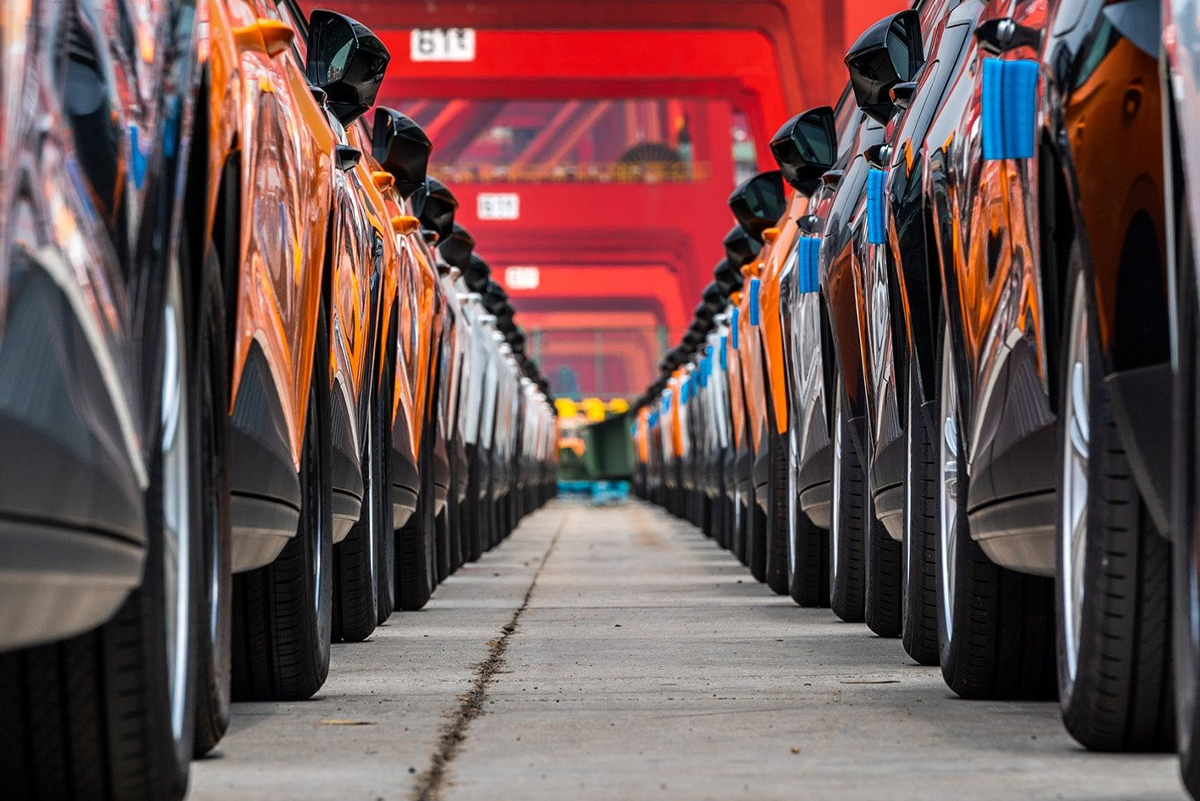China files WTO complaint about EU’s punitive EV tariffs
The Chinese Ministry of Commerce cites the protection of the rights and interests of the domestic EV industry as the reason for this step. Various news agencies quoted a spokesperson for the ministry as saying that the EU’s provisional decision lacked a factual and legal basis. According to Chinese state media, the ministry may also consider filing a complaint against the EU with the World Trade Organisation (WTO). It would be the next stage of escalation.
This comes after the EU introduced provisional punitive tariffs on electric car imports from China at the beginning of July. An investigation revealed that Chinese electric car manufacturers have unacceptable competitive advantages thanks to high subsidies from the government in Beijing and can thus offer their electric cars at a lower price in Europe than domestic manufacturers. For this reason, the special duties were not levied across the board but on a manufacturer-specific basis, according to the subsidies identified in the investigation.
Chinese state-owned automaker SAIC faces the highest duty of 37.6%, while Volvo Car AB’s parent company Geely and BYD were slapped with additional levies of 19.9% and 17.4%, respectively. The US has also tried to limit imports of Chinese-made electric cars by imposing tariffs of more than 100%, arguing that Beijing is flooding the world with cheap goods, especially in the new green industries. Canada is currently considering similar steps. As there is already an import duty of 10 per cent, tariffs would rise to up to 48 per cent.
The US is going even further and increasing its tariffs on EVs from China from 25 to 100 per cent. The measure was supposed to take effect on 1 August but has been postponed by at least two weeks. Canada is considering similar steps to “prevent trade diversion” that could result from the special tariffs already announced or introduced by the USA and the EU. In other words, the government fears that more e-cars from China will end up on the Canadian market.
After China had warned several times that it would retaliate for the special tariffs by introducing counter-tariffs, for example, the country is now taking official action against the EU’s special tariffs at the WTO. “Judgment in the EU’s provisional conclusion lacks factual and legal foundation,” a spokesperson for the Chinese Ministry of Commerce said in the statement. “It severely violated WTO rules and undermined the global cooperation on dealing with climate change. […] We urge the EU to immediately correct its wrongdoing, and together safeguard China-EU economic and trade cooperation as well as the stability of EV supply chain.”
Meanwhile, the EU Commission remains confident that its investigation and measures against state subsidies for Chinese electric vehicles are compatible with World Trade Organisation rules. In a first reaction to the Chinese request for WTO dispute settlement, the EU Commission said it carefully examined all the details of Beijing’s request to the WTO and would respond to the Chinese authorities in due course in line with WTO procedures. However, a spokesperson also said: “This request for WTO consultations does not affect the timeline of the anti-subsidy investigation, which in the meantime continues.” Once the assessment has been finalised, the provisional duties will become regular duties.
China has also filed a complaint with the World Trade Organisation (WTO) about the US subsidy rules for electric cars under the Inflation Reduction Act (IRA). The Chinese Ministry of Commerce explains that these rules are “discriminatory” and have “severely distorted” the global supply chain for electric vehicles.
The reason is that electric cars with battery components and materials from China do not qualify for the full tax credit in the US, as reported. Although the Inflation Reduction Act was passed in 2022, the rules of origin for battery components and materials were only added later – and China considers itself discriminated against by these rules.
At its core is the so-called ‘FEOC’ definition of the US regulation, i.e. a ‘Foreign Entity of Concern.’ According to the guidelines published at the end of 2023, a company is considered an FEOC if it is “owned or controlled by, or subject to the jurisdiction or direction of, a government of a relevant nation.” The countries in question are Russia, North Korea, Iran and China.
From 2024, electric cars may no longer contain battery components assembled or manufactured by an FEOC if the vehicle is to receive the full US subsidy. The next step will follow from 2025: batteries will no longer be allowed to contain critical minerals mined, processed, or recycled by an FEOC.
As electric cars from Chinese manufacturers generally also contain batteries from China, they will no longer be eligible for subsidies in the US. They will, therefore, be at an enormous competitive disadvantage. However, EVs from other manufacturers are also affected. For example, a Ford battery factory that is being built together with the Chinese battery giant CATL. Ford is now officially building the factory itself, but it is using CATL’s technology under licence to avoid problems caused by Chinese involvement.
The WTO’s dispute settlement procedure is primarily intended to ensure security in international trade, as this platform helps to resolve trade disputes. However, such proceedings can only be initiated by WTO member states, not by companies. The aim of dispute settlement is to resolve conflicts, not to issue a binding judgement.
reuters.com, bnnbloomberg.ca, reuters.com (EU Commission)





0 Comments